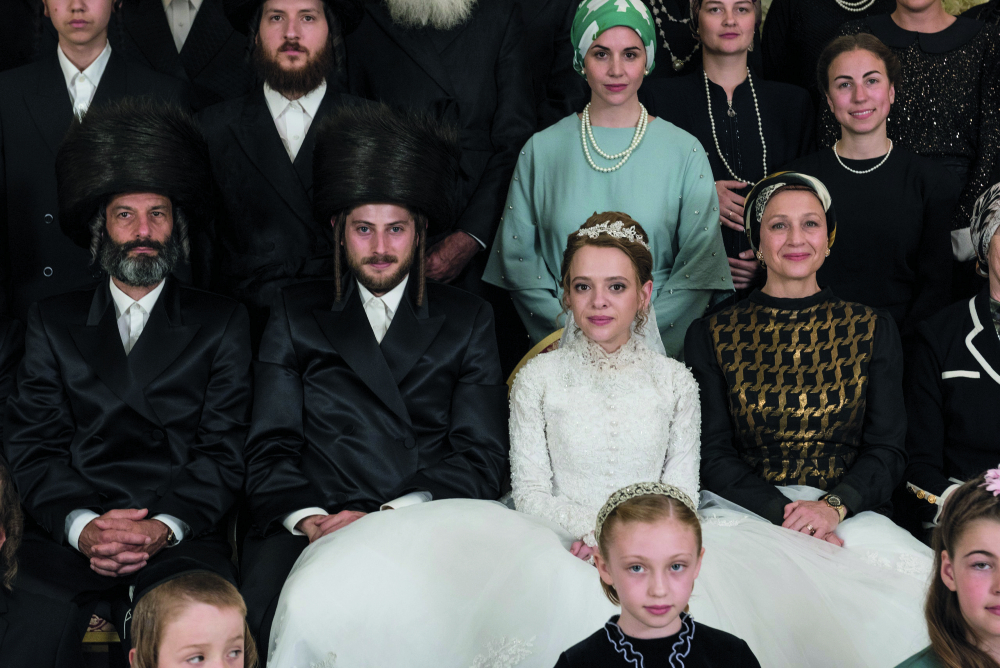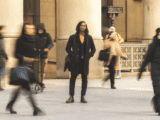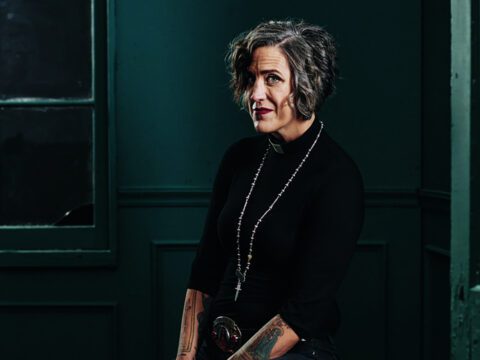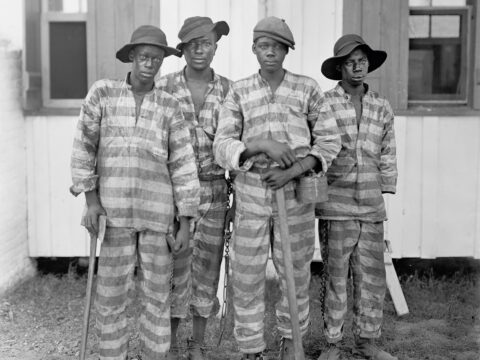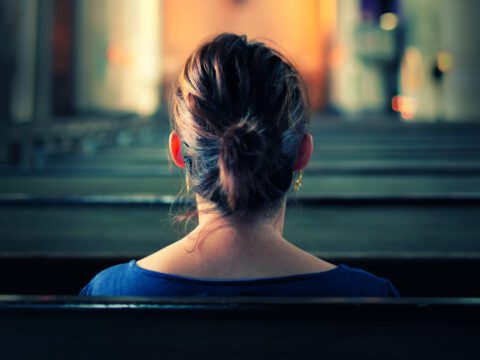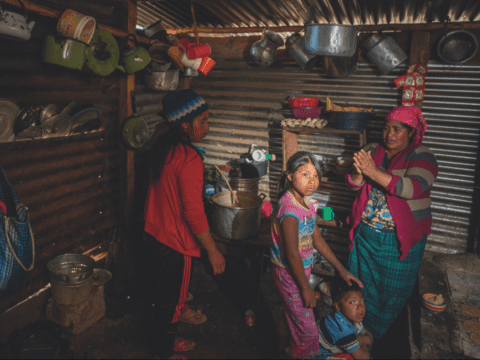I have a not-so-secret pleasure. During the dark winter days of February and March, I binge-watched two new television series with plots close to my own personal historical drama: Unorthodox, about a young Hasidic woman who flees her marriage and religious community in Brooklyn, N.Y.; and The Plot Against America, a cautionary fiction about the rise of fascism in the United States under an anti-Semitic president.
Stories about Jewish life have made a big impact on the small screen this year. As the daughter of Holocaust survivors, I watch these series with a sense of fascination and connection. Unorthodox helps me imagine a life that might have been mine had it not been for the Second World War, while The Plot Against America reveals where the United States might be headed today.
Inspired by Deborah Feldman’s 2012 memoir, Netflix’s popular miniseries Unorthodox tells the story of 19-year-old Esther (Esty) Shapiro, played by the diminutive powerhouse Shira Haas. Esty belongs to the Hasidic movement, an Orthodox sect of Judaism that traces back to 18th-century eastern Europe. Her Brooklyn community holds fast to its religious practices and customs, speaking Yiddish and isolating itself from the wider world.
Disillusioned after a year of marriage, the free-spirited Esty slips away to Berlin. There, she quickly befriends a diverse group of conservatory students, who encourage her passion for music. But Esty’s new life is threatened when her naive husband and his streetwise cousin pursue her to Europe, seeking to bring her home.
More on Broadview: 3 Canadians on their complex relationships with their homelands
Like Esty, my father also left his Hasidic community behind; unlike her, it wasn’t by choice. My dad was raised in a tiny shtetl of Orthodox Jews in the foothills of the Carpathian Mountains, now part of Ukraine. I often asked him what it was like growing up in the mountains with his extended family, farming cattle by day and studying the Torah with his rabbi father and older brother by candlelight. He would close his eyes and describe holiday celebrations, bringing food to the poor, climbing hills in search of fresh berries and fishing from the Shopurka River.
My dad was 14 in 1939 when the Nazis invaded their village of 1,200 — one-third of them Jews. Urged on by his older brother, Zalman, my dad cut his peyos (sidelocks) and dressed like a gentile. He fled on foot, walking 450 kilometres west to Budapest, where he and Zalman would eventually meet and survive the war by securing forged identity papers with Christian names. After the war, my father returned to the shtetl to find his Christian neighbours living in his family’s home. They had assumed the owners were dead or would never return. He was chased out of town and never saw his parents, sisters, uncles, aunts or grandparents again. They had been loaded onto trucks and gassed to death at the Auschwitz-Birkenau concentration camp.

In the 1950s, my father immigrated to Canada, eventually settling in Toronto. I was raised in a Conservative Jewish household, a compromise between his Orthodox roots and my mother’s more liberal background in Reform Judaism. Hearing his stories as a child, along with the songs and music of the Hasids, made me mourn for the family we lost and the customs and natural beauty of a world I would never experience.
But my youthful idealization of my father’s upbringing grew more complicated as I got older. While most of my high school girlfriends were celebrating their bat mitzvahs, I was denied that coming-of-age ceremony: my dad explained that in his tradition, women are not allowed to publicly read from the Torah.
I watched the scenes of Esty’s arranged courtship and wedding through a curious lens, wondering what my own life might have been like in an Orthodox community. Would I have embraced the wifely duty to make babies — a commitment to rebuilding the Jewish population after the Holocaust — or, like Esty, yearned for something more?
“I’m different from the other girls,” Esty tells her husband-to-be in their first awkward meeting, and that sense of difference eventually carries her to Berlin. Once there, however, she continually reflects on a lingering guilt, confronting the shadow of the Holocaust and the way it has defined her identity. When she wades into Berlin’s Lake Wannsee and removes her sheitel, the wig worn by some Hasidic wives as a sign of modesty, there’s both a palpable sense of freedom and a painful awareness of loss: overlooking the lake is the villa where Nazi leaders planned their genocide.

The Holocaust also looms over The Plot Against America. The alternate history depicted in the HBO miniseries will feel eerily familiar to Jewish people. In the show, which is based on Philip Roth’s 2004 novel, Charles Lindbergh beats out Franklin D. Roosevelt for the presidency in the 1940 election and encourages anti-Semitic attitudes throughout the country. The story follows Bess and Herman Levin (Zoe Kazan and Morgan Spector), who try to protect their two young sons in an America that is careening toward fascism. It’s a reminder of how fragile democracy really is, and how people can fall under the spell of a charismatic leader and go along with what once seemed unthinkable.
I watched the entire series with my mother’s history echoing in my mind. Before the Second World War, her family lived in Hungary for over 300 years as fully assimilated Reform Jews. My great-great-grandfather proudly served as a hussar general in the Austro-Hungarian army. When Nazi ideology began to spread in the 1930s, Jews were accused of having dual loyalty — they were not to be trusted because their true allegiance was to their religion rather than their country. This claim, a foundational anti-Semitic trope that dates back thousands of years, was used to justify the arrests, persecutions and mass killings that followed.

Ultimately, it led to my mom, then a baby, and her family being moved into the Budapest Ghetto in 1944 with 100,000 other Jews. My maternal grandfather was enslaved and forced to mine copper before being murdered by the Nazis in 1943. My mom, grandma and great-grandmother were the only survivors on my maternal side. All told, between 1942 and 1945, 89 of my family members on both sides were murdered for being the Other.
Today, the Other is Black and brown people. It’s Muslims and it’s recent immigrants. In the same way that Jews were, and still are, blamed for society’s woes, these communities are also convenient scapegoats, used as fuel to obtain and retain political power. The Plot Against America focuses on this struggle and how it can happen here. Indeed, as the racist and anti-Semitic demagoguery of the current American president makes chillingly clear, it’s already underway.
***
Carol Moskot is Broadview’s art director. She lives in Montclair, N.J.
I hope you found this Broadview article engaging. The magazine and its forerunners have been publishing continuously since 1829. We face a crisis today like no other in our 191-year history and we need your help. Would you consider a one-time gift to see us through this emergency?
We’re working hard to keep producing the print and digital versions of Broadview. We’ve adjusted our editorial plans to focus on coverage of the social, ethical and spiritual elements of the pandemic. But we can only deliver Broadview’s award-winning journalism if we can pay our bills. A single tax-receiptable gift right now is literally a lifeline.
Things will get better — we’ve overcome adversity before. But until then, we really need your help. No matter how large or small, I’m extremely grateful for your support.
Jocelyn Bell
Editor/Publisher

